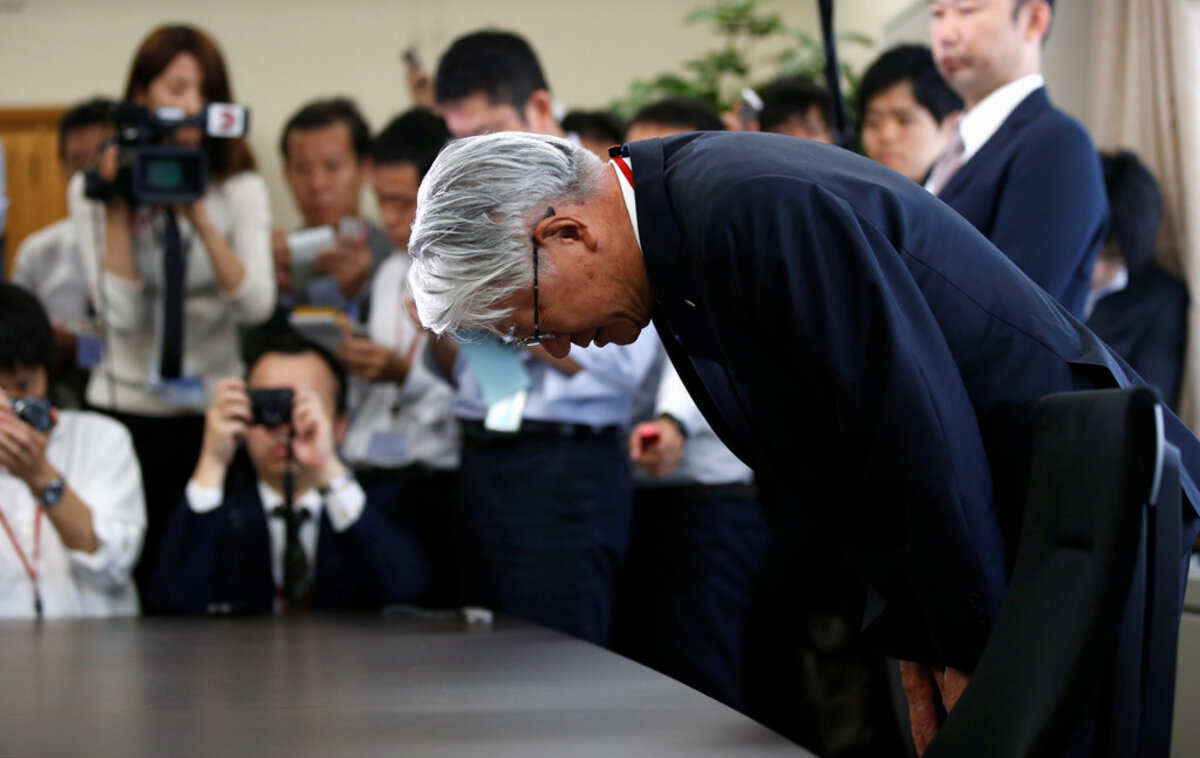The head of Kobe Steel, a giant manufacturer of metal products in Japan, made a rare admission on Oct. 12. After admitting his company had long lied about the quality of its materials, which are used worldwide in products from cars to computer chips, Hiroya Kawasaki added: “Trust in our company has dropped to zero.”
In an era of damaging deceptions by big businesses, his frankness was refreshing – and necessary to quickly figure out which vital metal products, such as airplane parts, need replacing. Many other big companies, such as Volkswagen and Wells Fargo, have recently lied about the quality of their products or services. Mr. Kawasaki was quicker than most corporate chieftains in giving a number for trust in his company..
His contrition now allows the 112-year-old steelmaker to begin the process of restoring its reputation in the global supply chain of manufacturers. Employees will be grilled on why the company shipped more than 20,000 tons of aluminum and copper products with fabricated inspection data to about 200 customers. Kobe Steel is also telling customers the details of its falsehoods. And the company will report within a month on which preventive measures it has put in place.
So far, Kobe Steel is following the necessary steps for rebuilding trust: Deliver an authentic apology, tell the whole truth, make amends, and fix those aspects of company culture that led to the deception. If it succeeds, the company will not only save itself and the reputation of the Japanese manufacturing industry, it may help reverse a worrisome worldwide trend. Trust in major institutions from government to media is at an all-time low, according to a 2016 survey of 28 countries by the Edelman communications firm. Trust in businesses has hit a low of 52 percent while the credibility of chief executive officers is only 37 percent.
The key to earning trust is for companies to be more open to criticism and advice. “The best companies are already deeply listening to and strategically acting on insights from their employees, customers, and other stakeholders,” says Edelman CEO Matthew Harrington.
Such humility allows for transparency. After the General Motors scandal in 2014 involving the coverup of faulty ignition switches, a new CEO, Mary Barra, encouraged criticism from customers and suppliers. She calls such candid feedback “a gift.” When trust in a company goes to zero, as Kobe Steel now knows, rebuilding it requires an openness to listening.





